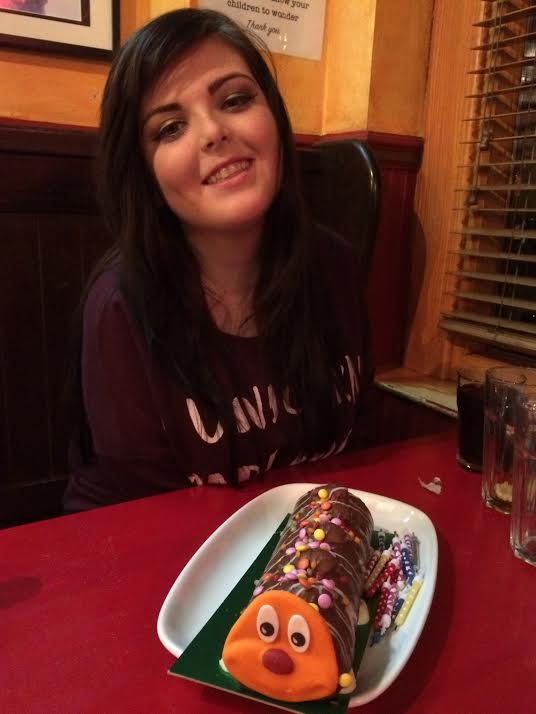It’s tricky training to be an actress. Here RACHEL ATKINSON shares her unique experience…
My name is Rachel Atkinson and I am training to be an actress. I am deaf. I have a low frequency hearing loss in both ears.
Some people might think that because you are deaf you cannot be involved in the arts, but this is simply not true! Take, for example, the classical composer Beethoven. He was deaf, and he wrote some of the most accomplished melodies the world has ever known.
I feel strongly that we need to make dance and music more accessible for the 45,000 deaf children and young people in the UK. This is why I am working with the National Deaf Children’s Society (www.ndcs.org.uk) to increase levels of deaf awareness in the arts, whilst also raising the expectations amongst teachers of what deaf children and young people can achieve in dance and drama and music.
Some of the earliest memories I have are of being in music classes. The only thing I can remember as a toddler is playing on toy pianos. If it wasn’t for that class, I don’t think I would be involved in the arts quite as much as I am today. These early years experiences really set the foundation. I went on to have piano, violin and singing lessons after that, as well as join a drama club and a choir.
I am now studying at Belfast Metropolitan College and doing a BTEC Level 3 Extended Diploma in Performing Arts (Acting) with the view to go on to drama school.
This, I feel, is all because I had teachers and coaches who believed in me.
The National Deaf Children’s Society asked deaf children and young people across the UK about their experiences of the arts. This revealed that many deaf young people still don’t feel as though music, dance and drama is accessible to them. This is such disappointing news for me because being involved in these activities has helped me grow as a person; it’s increased my confidence and has made it easier for me to make friends.
That’s why the Society is encouraging young deaf dancers and musicians to showcase their performance skills and enter Raising the Bar, a new music and dance competition.
Ten lucky winners will be invited to attend a two-day masterclass which will be filmed and used to develop a new ‘toolkit’ for teachers to raise deaf awareness among dance and music professionals. I really hope this toolkit will inspire, because deaf children can do anything other children do, given the right support. Every deaf child should have the opportunity to take part in the same activities that their hearing friends and siblings do.
I’ve noticed that when you are deaf you tend to try and keep yourself to yourself because you feel as though others ‘can’t be bothered with you’. So it’s really important that deaf children and young people can take part in the activities they enjoy and not feel isolated and excluded. In my case, drama helped me to gain better social skills and pretty much eradicated my shyness!
That’s not to say it’s been easy. Being deaf has created some difficulties where performing arts are concerned. Sometimes I get a director or a choreographer with a quiet voice and sometimes it can be intimidating to ask them to speak up. Or sometimes I’ve experienced dance teachers who turn their back to you to show you a move, meaning I can’t lip read them anymore. There are small, simple steps teachers can take to make their activities supportive and inclusive to deaf students.
If you have a deaf child in your class, please be aware that, like me, they sometimes might feel a little too intimidated to tell you they can’t hear you. In my case, this is usually because I think they have bigger things to worry about so it’s good to get assurance from a teacher that, if I can’t hear, to come to them or to ask them to repeat it. I love the arts, and I think patience and understanding, for all of us, is the biggest tip I’ve learnt so far!
The National Deaf Children’s Society works with activity providers by offering information, resources and training to help make your activities supportive and inclusive to deaf children and young people. You can find more information about Raising the Bar and making your classes deaf-friendly here: www.ndcs.org.uk/me2.



